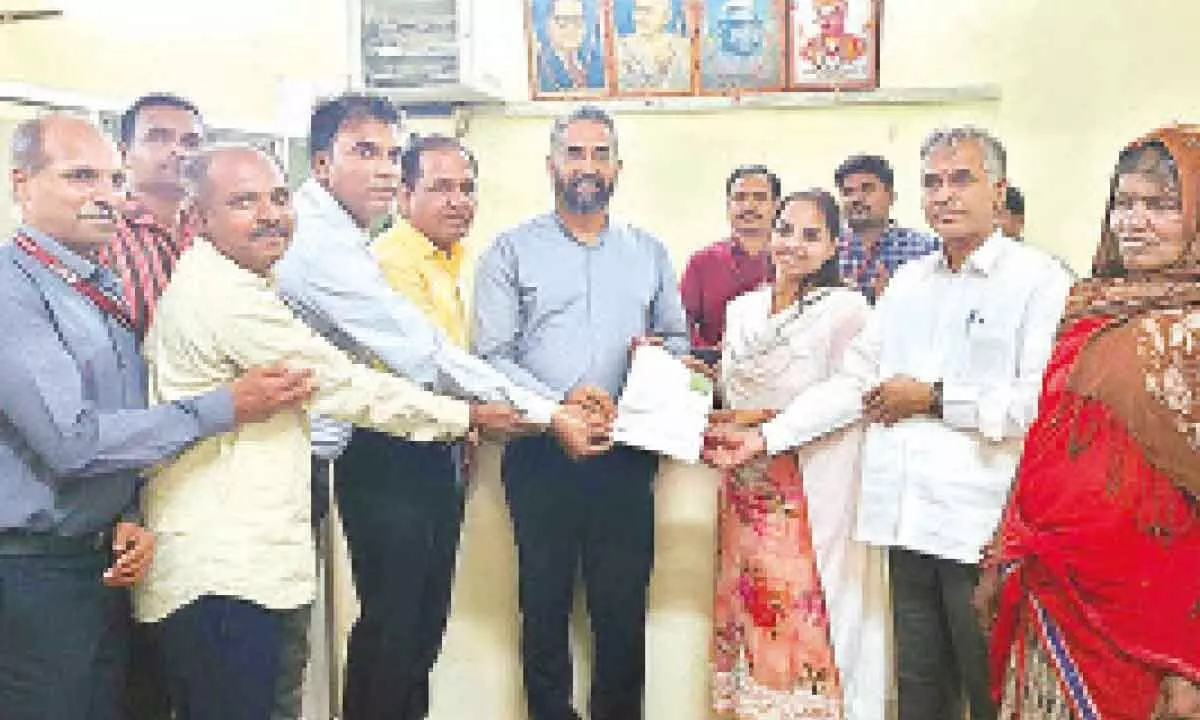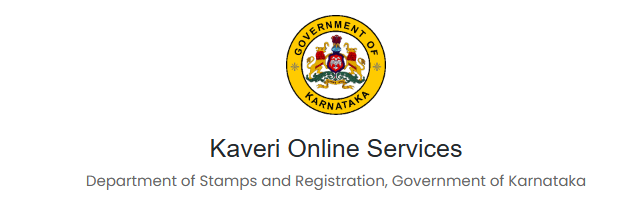The Karnataka High Court has raised a strong objection to a critical loophole in the State’s Kaveri 2.0 land registration and mutation software, stating that it lacks a facility to record and implement civil court decrees in property records. During a hearing on land dispute petitions, the bench observed that the failure to integrate decrees passed by civil courts into the software has led to thousands of affected cases where rightful owners are unable to secure mutation or change of
Legal experts point out that civil decrees are often critical in settling land ownership disputes that drag on for years. Once the cases are resolved, the court orders must be legally reflected in revenue records to prevent further conflicts. Since Kaveri 2.0 does not allow this crucial step, individuals who have already won legal disputes are forced to run from one government office to another for manual updates. Lawyers argue that this undermines public faith in the justice system, as the software’s loophole essentially stalls the implementation of court decisions, delaying rightful ownership even after lengthy litigation.
Revenue department officials acknowledge practical difficulties but emphasise that complete digitisation is still a work in progress. Some officers say that integrating court decrees involves multiple legal layers and requires coordination with the judiciary’s database. They claim that the software’s current version was prioritised to streamline property registration and reduce corruption at sub-registrar offices. However, critics counter that prioritising ease of transactions without ensuring legal legitimacy defeats the purpose of digitisation. They argue that reforms should not only target efficiency but also accuracy and lawful enforcement, or else they risk creating a technologically advanced but legally weak system.
Former judges and land rights activists say the consequences could be severe if loopholes persist. They warn that unrecorded court decrees could lead to overlapping claims, fraudulent transfers, and disputes resurfacing after years. Farmers and landowners, who are often affected by fraudulent transactions, remain particularly vulnerable. Activists highlight that Karnataka has a long history of land-related conflicts involving tenancy rights, forest borders, and inheritance issues. If technology fails to respect judicial outcomes, it could worsen land insecurity instead of eliminating it. Several experts have urged the State to immediately upgrade Kaveri 2.0 to prevent cascading legal complications.
The High Court has suggested that the State government form a technical-legal committee to address these concerns within a fixed time frame. The panel would be expected to ensure compatibility between court orders and land records, propose legal safeguards against tampering, and create a transparent process for verification. Stakeholders believe that such reforms will help restore confidence in digital governance initiatives and reduce corruption. The court has also indicated that delays may lead to judicial intervention. With increasing reliance on digital systems for land administration, the government now faces pressure to ensure that technology strengthens, rather than undermines, the rule of law.


According to the High Court, the software’s existing structure allows entries for sale deeds, gifts, partitions, and other registered instruments, but does not accommodate court decrees that determine ownership, possession, and succession rights after litigation. This omission has resulted in a situation where individuals who won property disputes in civil courts still cannot have their records updated because the software does not provide an input mechanism. The court called it a “serious legal lapse with constitutional ramifications,” since it threatens access to justice and erodes faith in the legal system.
The court further remarked that many litigants have spent years fighting disputes over inheritance, boundaries, tenancy claims, or fraudulent transactions, only to find that their victories remain unreflected in land records. In some districts, land officials rely on manual entries or outdated methods, causing inconsistencies, corruption, and delays. The judges noted that digital governance is intended to remove inefficiencies, not create obstacles that prevent valid judgments from being implemented. They stated that the situation cannot be dismissed as a mere technical issue, because it impacts fundamental property rights.
Judiciary Questions Administrative Accountability in Digitisation
The High Court asked the State government to file a detailed justification for why such a crucial feature was left out of a system designed to modernise land records. It questioned whether experts in law, revenue administration, and information technology were consulted before implementing the software. The bench observed that while digital platforms may streamline administration, they must be built around legal procedures, not the other way around. It insisted that the government cannot hide behind technology when citizens’ legal rights are blocked due to poor design.
Officials representing the government stated that the objective of Kaveri 2.0 was to eliminate manual interventions and create seamless integration between registration, mutation, and records maintenance. The court interrupted this explanation, asking how the system could be considered seamless when it excludes a legally binding instrument such as a court decree. It emphasised that civil courts are not external bodies functioning outside the scope of the land administration system, but integral institutions whose decisions must be automatically recognised.
The judges warned that leaving out decrees is dangerous because it allows bureaucratic discretion and local manipulation to continue despite digitisation. They pointed out that one of the central goals of digital records is transparency, and transparency loses its meaning if judicial decisions do not automatically inform the database. The court directed the government to treat the issue as a priority requiring a structural redesign rather than a temporary workaround or manual bypass clause.
The High Court stated that technology should respect the hierarchy of legal authority, where decisions by civil courts hold greater weight than registered instruments like sale deeds. A decree is often passed to correct fraud, enforce inheritance rights, or restore property to rightful owners. If such decrees cannot be recorded digitally, the software allows the continuation of injustice even after a court has settled the dispute. The court noted that such flaws could lead to litigation against the State itself for violating constitutional guarantees of property and justice.

Digital Records Must Respect Law, Not Restrict It
Legal experts present in court supported the judicial observations, stating that land governance cannot rely solely on transactional documents. Property litigation often resolves disputes that originate precisely because transactions were forged, manipulated, coerced, or contested. If registered documents alone are given digital validity while decrees are ignored, the system effectively protects fraudulent or disputed transactions while excluding legally corrected ones. Lawyers argued that such a structure disrupts the idea of due process and creates digital injustice.
Technology consultants working with land reforms have commented that the problem reflects a fundamental misunderstanding among software developers about the nature of land dispute resolution in India. They noted that systems like Kaveri 2.0 are often built with a transactional mindset, ignoring judicial data as a core part of governance. According to them, any land administration software must integrate with court databases or provide mandatory decree-based mutation pathways. Without this, digitisation becomes a model of exclusion.
Revenue officials privately acknowledge that the loophole has created confusion at the ground level. In many taluks, manual mutation requests based on decrees are kept pending because they do not fit into the software format. This has led to complaints that digitisation has increased delays instead of solving them. Some officers reported feeling vulnerable, as they can be accused of corruption when they are forced to handle decree requests outside the software. They emphasised that a clear, automated system would protect both citizens and officers.
Farmers’ associations have also expressed concern, stating that immovable property is the primary asset for rural families, and any disruption in ownership records affects their livelihood, access to loans, government schemes, and compensation for land acquisition. They said a decree that cannot be recorded digitally defeats the purpose of litigation and pushes people back into long cycles of bureaucracy. Farmer leaders demanded immediate government attention, stating that technology must not become a new form of harassment.
Systemic Changes Expected as Judiciary Pushes for Reform
Law professors analysing the issue say that the High Court has opened a broader debate about technology-driven governance. They argue that governments must stop seeing digitisation as a way to automate existing administrative patterns and instead align software design with constitutional values. Systems must ensure accessibility, fairness, and recognition of judicial supremacy. They warned that any digital system that weakens legal rights is an unconstitutional innovation masquerading as progress.
The High Court has instructed the government to respond with a timeline for corrective action and explain whether a formal blueprint exists to integrate decree-entry facilities into Kaveri 2.0. It also sought clarity on whether the Revenue Department will train officers to update records based on decrees and ensure consistency across districts. Observers note that this could lead to major reforms, including a unified interface between land records, court data, and registration offices, creating a legally robust digital ecosystem.

The court made it clear that merely updating software is not enough. A decree-based workflow must be compulsory, automated, and documented, with strict penalties for non-compliance by revenue officials. The bench emphasised that public trust in the justice system depends on whether judgments translate into real-life outcomes. The judiciary cannot remain a symbolic authority while technology blocks its enforcement. For this reason, the court may monitor implementation through future hearings.
Legal activists welcomed the court’s stance, stating that vulnerable sections, including farmers, widows, senior citizens, and inheritance claimants, suffer the most when decrees are not recorded. They urged the government to adopt decree recognition as a core principle of land administration, not a secondary feature. They believe that the ruling has the potential to make digitisation more accountable, transparent, and inclusive. They also called for clear grievance redressal channels for those denied mutation despite decrees.
The High Court’s intervention now places moral, administrative, and legal responsibility on the State to redesign its land software in alignment with constitutional obligations. If the government implements the required reforms with seriousness, Karnataka could become a model for digital governance that respects judicial authority. If not, the court may escalate its oversight and consider broader directions impacting land administration policy. For now, Kaveri 2.0 remains under scrutiny, and citizens wait to see whether technology will finally serve justice, or continue to marginalise those who win their battles in court only to lose them at the level of bureaucratic implementation.
Follow: Karnataka Government
Also read: Home | Channel 6 Network – Latest News, Breaking Updates: Politics, Business, Tech & More

